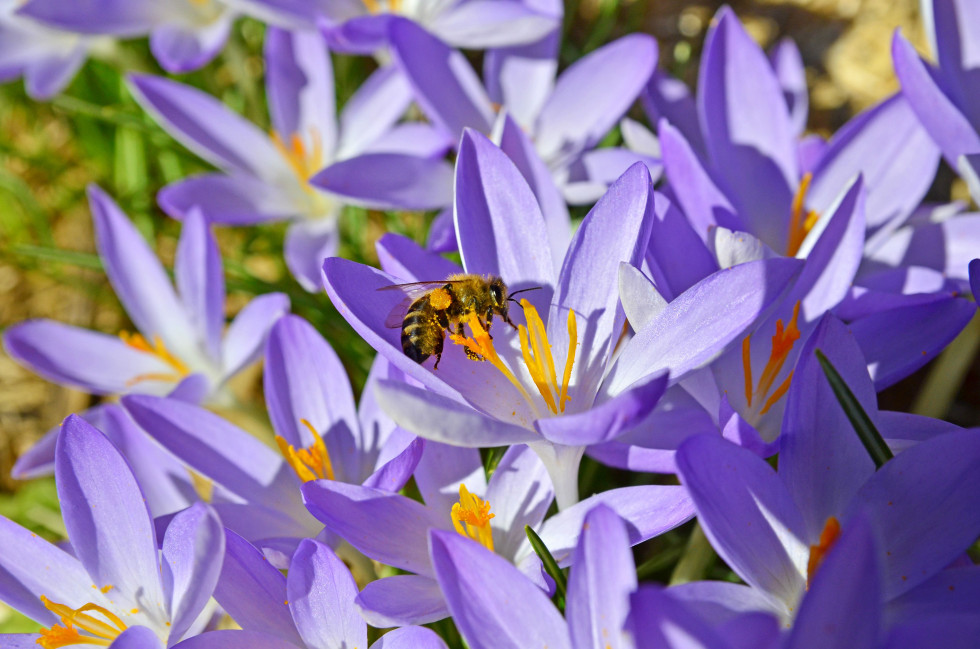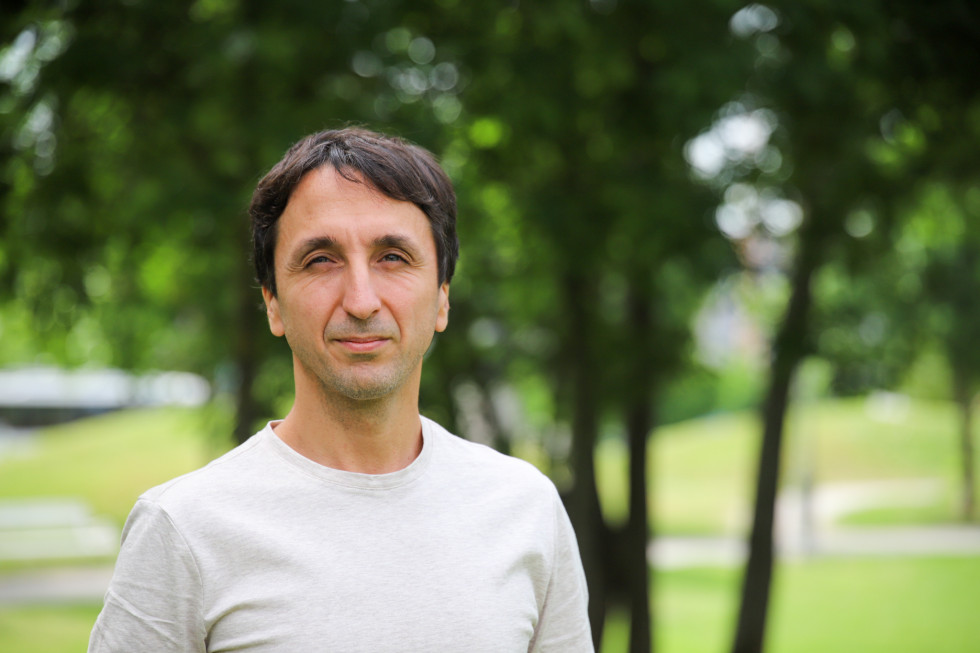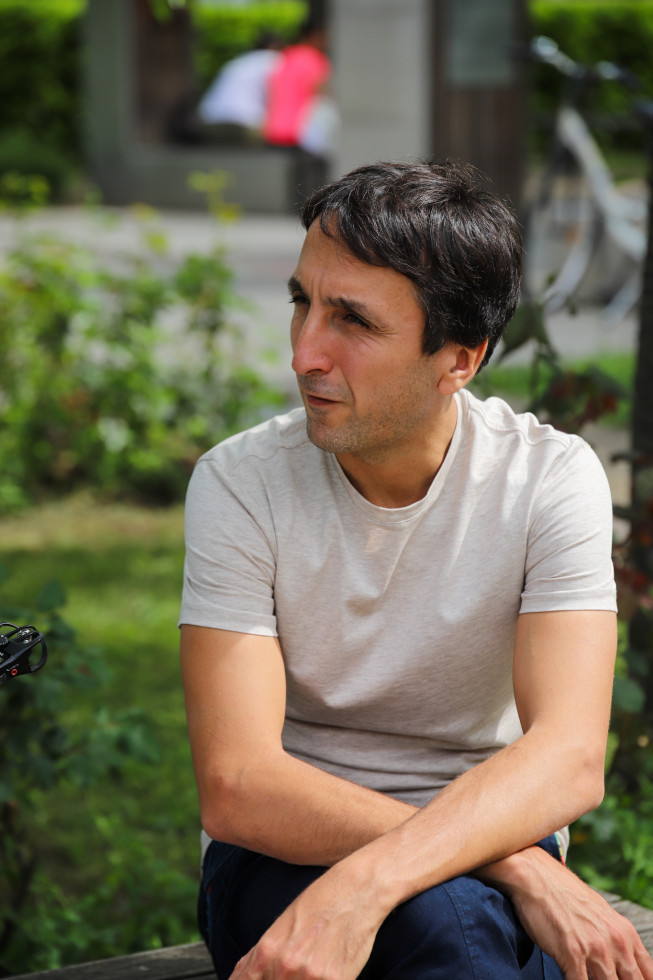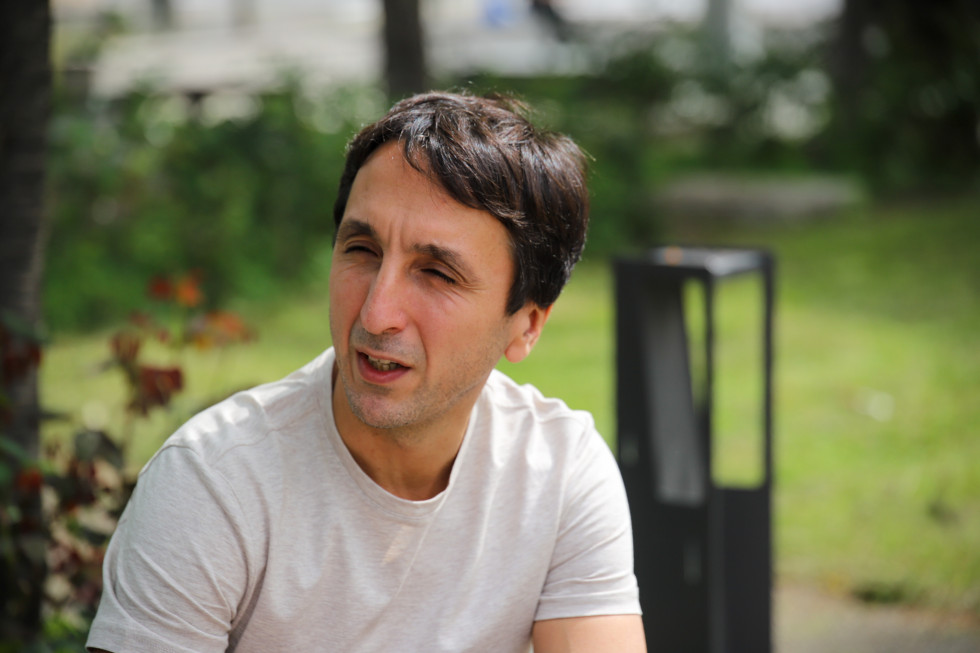Interview with the first recipient of the Golden Bee Award Prof. Lucas Alejandro Garibaldi
You are the winner of the first Golden Bee Award. What does the award mean to you?
You are the winner of the first Golden Bee Award. What does the award mean to you?
The Golden Bee Award is the most important award in the world for the people that work with bees, people that love bees. It is a really great honour and I am very happy because of this. It is a very impressive idea by the Slovenians and I hope our country also try to see this great idea about the Golden Bee Award and also follow some of the great initiatives that Slovenians are doing to promote the bees and the environment.
You have been promoting biodiversity and producing healthy food for a number of years. Pollinators play a very important role in this. Do you think we do enough to preserve them?
There are many initiatives around the world to preserve pollinators and they are successful locally but the weight of these positive actions is very small compared to rate of destruction that we are suffering all over the world. The balance globally is quite negative, so we need to do much more, we need to do faster and wisely.
You have examined pollination and nature's contribution to the well-being of people in your studies. How would a decline in the number of pollinators affect our health?
It affects our health in four ways. The first one is nutrition. Bees and many other animals are pollinators for most of our food crops, so when you destroy bees you are also affecting pollination and the number and quality of the seeds and fruits that we eat. Second, through bee products and medicines. There are many bee products that are good medicines for us like honey, propolis, but also pollinators and bees pollinate around 20 000 medicinal plants around the world
The third way is through mental health. Bees contribute to maintaining environmental and biocultural landscapes and nice environmental places that we use to connect with nature to exercise and this is also a very important aspect for our mental and physical health. The fourth way is through environmental quality. All the initiatives to promote bees and bee health try to reduce agrochemical pesticides, pollutants and biocides so in this way bee friendly environment is also less polluted and we face less water pollution, food pollution, etc.
The world's population is growing and the activities affecting the environment are more and more severe. Food will become scarce. What do you believe that world leaders should do to tackle food security?
Agroecological transitions are a great pathway in which we move progressively from conventional farming, which is using a lot of agrochemicals and fuel. These are high input farming systems and huge monocultures. Year after year, instead of destroying biodiversity, we use it to produce more, we use fewer agrochemicals and he have a better diversity of plants and bees, better environment, better food quality and more production.
You also participate in drafting legislative proposals. Do you believe that countries are willing to listen to your proposals in drafting their legislation
I hope so. It is important that the increased awareness that we are destroying our house and world should also translate into improved bills and national legislation for the well-being of all the people.
When did you take up beekeeping?
When I was in secondary school, I was very interested in bees so I took courses on beekeeping in the beekeepers’ association of Argentina. It was really nice and I loved it. We still have hives, we have a farm 70 kilometres from the city where we live. We go there every weekend. We have bees there and we harvest honey.

The Carniolan Bee | Author Slovenian Beekeepers' Association
What do you find most fascinating about bees?
It is difficult to say because I love everything about bees but I think that one of the important things that we have to learn about bees is to work as a community. Nowadays, we are too focused in the individual success. We need to shift towards the community. This extreme focus on our ego and individual success is not making us better and happier people. On the contrary, we are suffering a lot because of this extreme focus. I think that through individual actions we need to focus more on the community-level issues. That would lead us to live in a better environment and to be healthier and happier.
The topic that we have chosen in Slovenia for this year's World Bee Day are young people in beekeeping. Do you think that young people are sufficiently informed about the importance of bees and other wild pollinators? Could we raise their awareness? How?
We should do more to connect to young people and we should connect them in the places they go and enviroment they visit, and the internet. So we can try to disclose and be with them and to realize that they are part of nature. Young people and people in general, we are part of nature. Sometimes we live in cities and we don't realize that and bees are important component of nature so they can enjoy working with bees. Working with bees is fun and it's good for themselves and for other people.
We need to look what are the interests of young people and try to connect them through those interests. If they like to play video games, we should try to connect video games with the life of bees and try to move people outside, to know the environment, to connect with the bees and to se the importance that they have. Young people need to understand and they do matter a lot and that they can change things if they connect more with the environment and the bees, to be in a better place.
What would you like to say to the people on the occasion of the fifth World Bee Day?
My main message is to realize that we are part of nature and if we destroy the nature, we are destroying ourselves. We can not be healthy people living in the destroying environment. Bees are important component of nature, so by taking care of bees, of course the honeybees, and also the diversity of wild bees, we are taking care of the environment and we are also taking care of ourselves. To make a change, too many of us ask for a return, but the change is within us.
Apart from Golden Bee Award and the celebration of World Bee Day, what could be done to raise awareness of bees and other pollinators and their role?
I think it is important to work with people in the cities and with young people at the educational level. We also need to connect young people with nature and bees. Most of the people live in big cities and they think that they are not part of nature and are disconnected from it. This affects their mental health and also the decisions that they take. These decisions influence nature and the world around us. That is why it is important to reconnect people with nature especially from the young ages and schools.
One of the ways of protecting bees is by limiting the use of pesticides. But what would contribute to improving the population status of wild pollinators?
I think that reducing pesticides and considering bees when using pesticides and biocides is really important because this insecticides kill the bees directly but also other chemicals kill the bee indirectly by destroying their food, for example, or their house. It is also important to change land use overall so we are focusing on few crops and we are reducing the diversity in the agricultural landscape. This reduction of diversity focusing on crop monocultures and creating homogenous landscapes is one of the reasons for the decrease of biodiversity in general and the diversity of bees in particular.




